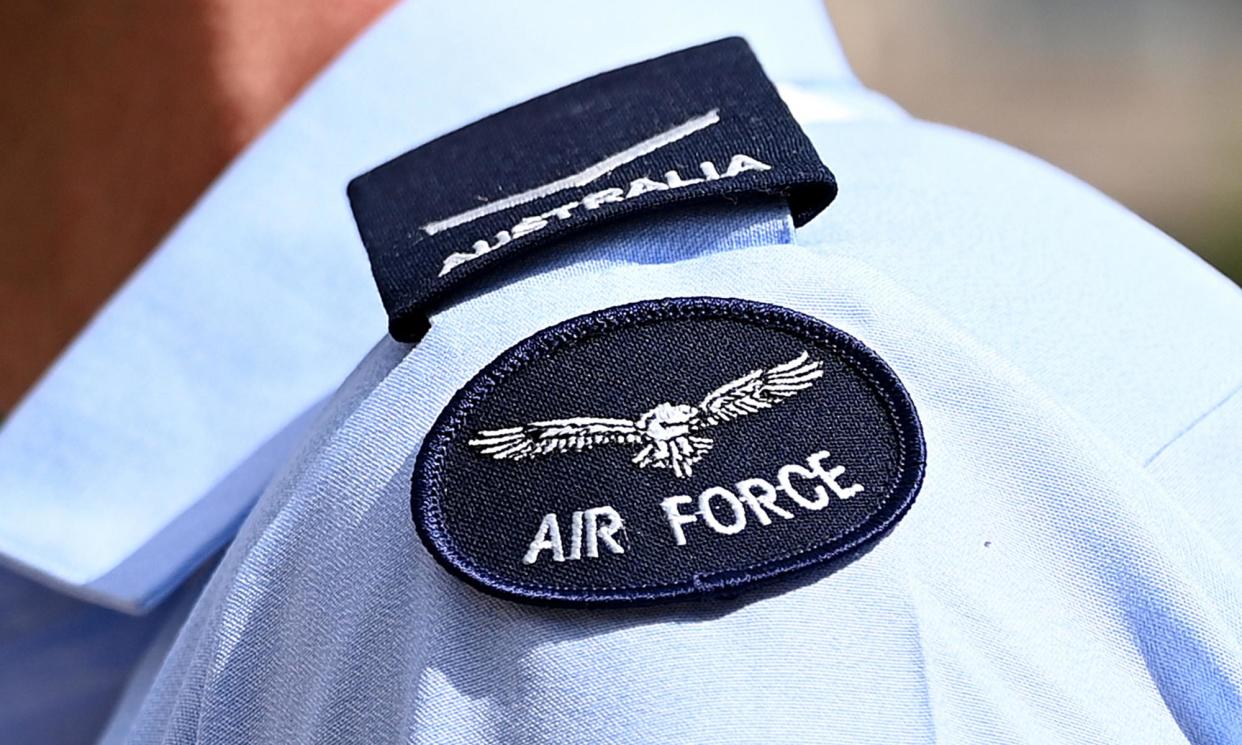LGBTQI+ intolerance prevalent among Australian air force chaplains, inquiry told

Some religious chaplains in the air force hold “unacceptable views about minority groups, women [and] LGBTQI+ persons”, posing a mental health risk to members, the royal commission into defence and veteran suicide has heard.
And part of a review commissioned by the defence department into the air force chaplaincy unit – quietly tabled as evidence to the royal commission – found tension between theology and values, “notably in relation to gender and LGBTI inclusion”.
“Some chaplains perceived other chaplains to be intolerant towards LGBTI people, women and those chaplains who express differing theological views,” the review found.
Collin Acton, a former director general of chaplaincy for the navy, said chaplains were members’ first port of call for mental health help, with other forms of help off base or harder to access.
Related: The military’s toxic culture poses a real risk to Australia’s security | Nick Kaldas
The “vast majority [of ADF members] are ticking the ‘no religion’ box” and would be reluctant to seek support from chaplains, many of whom were ordained ministers, Acton said.
“A large portion of our workforce would prefer not to speak to a minister as their first port of call when they’re going through difficult times,” he said.
“They might be well-equipped to look after members of their own flock, but they’re under-equipped to look after the rest of the personnel.
“Religious ministers don’t sit down and have a conversation with someone about their worldview, they come with an agenda.”
Guardian Australia revealed last year that the Australian defence force (ADF) as a whole has a disproportionately high number of pentecostal and evangelical chaplains. For example, there are 13 Australian Christian Churches (formerly known as Assemblies of God) chaplains for the 13 members that identify with that denomination.
Chaplains are also ADF members, so the ratio could be anywhere from one-to-one to 13-to-none, depending on how individuals identified themselves.
Meanwhile, there are five non-denominational Christian chaplains and 4,217 serving members who identify that way, a ratio of one-to-843.
In a commission hearing, the air force chief, Air Marshal Robert Chipman, said the review found there were “deep-rooted cultural challenges” within air force chaplaincy.
“And there was an unhealthy mix of theological beliefs … of a view that things that happen between chaplains should stay within chaplains,” he said.
“Both of those created conditions for an unhealthy culture to develop within chaplaincy branch and that had very significant impacts on the welfare of some of our chaplains.”
Commissioner Erin Longbottom put to Chipman that the review found “there was a conflict between faith-based values of chaplains within that branch and the requirements of a modern defence force”. Chipman agreed.
Related: Royal commissioner accuses ADF of ‘too much talk and not enough action’ on veteran suicide
“We did find chaplains … from certain theological schools that had concerns with female chaplains or LGBTIQA chaplains and so those … beliefs that they bring as chaplains into our organisation did intersect unevenly with our Defence values,” he said.
Chipman also agreed that the review found “unacceptable views about minority groups, women, LGBTQI+ persons”.
“If there are chaplains practising in Defence that cannot abide by our values and behaviours, then they need to find somewhere else to be employed,” he said.
However, Chipman said that in general the chaplains did a “phenomenal job” and “save lives every day”.
Guardian Australia has sought the air force chaplaincy review under freedom of information laws since September. The request was initially rejected because it would cause an unreasonable workload. Defence sought an extension to the deadline for a revised request to November. In February, the request for “any reports or directives produced from the air force chaplaincy review” returned a directive about the implementation of the review, but not the report itself.
However, an executive summary of the report was provided to the royal commission.
It found there was “tension” reconciling “strong theological beliefs with Defence values”.
Chaplains dealt “‘in house’ with unacceptable behaviour complaints within the branch” instead of through Defence processes, it found. Some complaints went without action or resolution.
“Others identified inappropriate behaviour which appeared to them to be condoned within the branch”, it found, while some chaplains said that “unacceptable or undesirable behaviour or comments falling short of unacceptable behaviour was excused within the branch where they were associated with views supported by a chaplain’s faith group but not otherwise consistent with Defence values and behaviour”.
In its submission to the royal commission, the Rationalist Society of Australia pointed to research that found almost 64% of ADF members – and 80% of new recruits – were not religious.
The society claimed chaplains viewed the position as missionary in nature and were “unable to provide non-judgmental care”, which the organisation said could stop personnel getting appropriate support.
“The religious-based nature of the capability opens the door to chaplains identifying problems as ‘sin’ and the solutions as requiring ‘repentance’.”
Acton was pivotal in a push to get a non-religious chaplains into the navy and has since pushed for secular reform despite a significant backlash from some opponents.
“I’m not saying get rid of religious chaplains, but they should be in proportion to the religious portion of our workforce,” he said.


